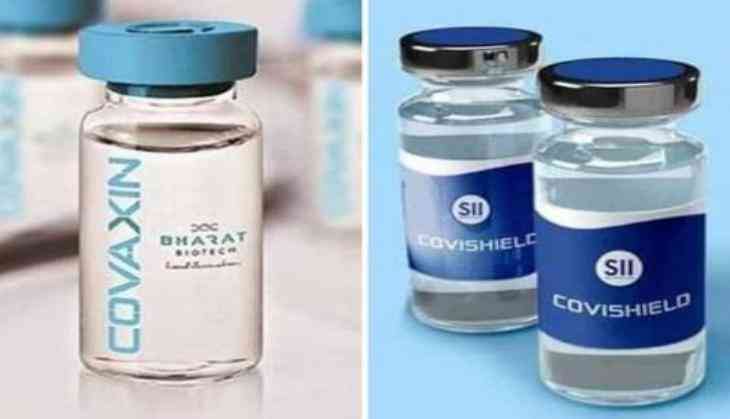Covaxin vs Covishield: Detailed comparison between Indian COVID vaccines

India is all set to get the ball rolling with the third phase of vaccination drive, starting 1st May, which will make all adults over the age of 18 eligible for inoculation.
One of the largest vaccination drive in the world comes at a time when the country is shaken by a terrible cataclysm induced by the mutant viruses and second wave.
Currently, there are two vaccines available Bharat Biotech's Covaxin and Serum Institute- Oxford University-AstraZeneca's Covishield vaccine.
1) Is one better than the other?
Covaxin and Covishield are both indigenously developed vaccines that have propelled India’s vaccination drives. While Covaxin is fully made, developed and produced in India, Covishield is manufactured by Serum Institute of India which is located in Pune.
Nevertheless, there are some differences and benefits which set them apart. Covishield remains to be the popular choice, used in many countries. Covaxin, on the other hand, is now deemed to be one of the most effectual against mutant variants.
2) How are they made?
Covaxin and Covishield are both similar vaccines which is produced using inactive/modified forms of the virus.
Covishield is a viral vector vaccine that uses an adenovirus found in Chimpanzees, ChAD0x1, to give spike proteins and mount a tolerable immune response against a live virus.
On the contrary, Covaxin is also a traditionally made vaccine but uses an inactive viral strain. It makes use of a dead virus that drafts an immune response.
3) How many doses are needed?
Both the vaccines work as two-dose vaccines, given weeks apart. Covaxin's second dose needs to be given 4-6 weeks after the first one, Covishield's second dose could be delayed, that is. given 6-8 weeks after.
4) How effective are they?
Both the vaccines have been found to be well-effective, meeting with WHO standards and bringing on certain immune responses.
Covishield, which ended trials in November 2020 has an efficacy rate of 70%, which could be further increased to 90% if the dosing is given half a dose, followed by a full dose a month later. The tolerability and protection have also been found to be well-suited and thought to lower the risk of symptomatic infections and speed up recovery.
Covaxin completed major trials by the end of February. According to interim results and clinical analyses, the vaccine was found to have over 78% efficacy. Furthermore, there has also been clinical proof that give the impression that Covaxin could lessen severity and mortality risk by a colossal 100 per cent.
5) Pricing of the vaccine:
Both the vaccines are now available in the open market for states to procure. Covishield is to be sold at Rs 300 for the government, while it will be sold for Rs 600 to private facilities.
Covaxin is a little costly and the public might have to bear the cost. For state governments, it will be priced at Rs 400, while for private facilities, it will be priced at Rs 1200.
6) How effective are they against new mutants?
It has been observed that Covaxin is much more effective in subduing infectivity and showcasing good tolerance against newer, infectious strains, including the UK strain linked to a lot of cases.

